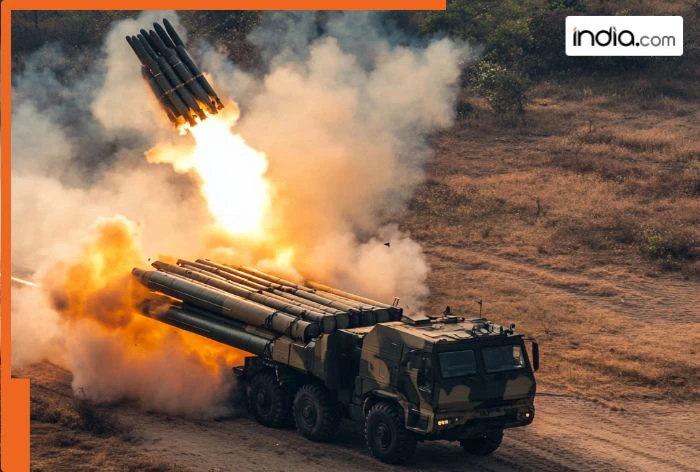India is continuously improving its defense systems. As part of this effort, the Defence Research and Development Organisation (DRDO) is now working on a next-generation guided rocket system called Pinaka-IV. This new rocket system is being specially designed to hit targets accurately up to 300 kilometers away.
According to a report by Indian Defence Research Wing (IDRW), the testing of this powerful and modern rocket system will likely start in the year 2028. Pinaka-IV will be inspired by tactical missiles like Pralay, and will have smart features that allow it to dodge enemy air defense systems and strike with great precision.
History of the Pinaka Rocket system
After the Kargil War with Pakistan, the Indian Army added the earlier version of this rocket system the Pinaka Multi-Barrel Rocket Launcher (MBRL) to its forces.
Pinaka has since become an important part of India’s artillery system, helping the Army during both peacetime and war. The system is named after Pinak, the bow of Lord Shiva in Indian mythology.
Pinaka Rocket system now upgraded to strike as far as 300 kilometers
India’s rocket system Pinaka has come a long way since it was first introduced in the Army. The very first version, Pinaka Mk-I, had a range of 40 kilometers. Later, new versions were developed with longer ranges up to 75 90 kilometers.
The upcoming Pinaka Mk-III will be able to hit targets up to 120 kilometers away. Now, DRDO is working on Pinaka-IV, which will have a powerful 300-kilometer range. This shows how fast India’s defense technology is moving forward.
What makes Pinaka-IV special?
The new Pinaka-IV rocket is much stronger and smarter than the older ones. The older rockets had a smaller size of 214 mm, but Pinaka-IV is bigger, with a size of 300 mm. Because of this, it can carry a heavier explosive, up to 250 kg.
DRDO’s Research Centre Imarat (RCI) has added a special smart system to help the rocket find its way and stay on the right path. This system helps Pinaka-IV hit its target very accurately missing by less than 10 meters, even from very far away.
